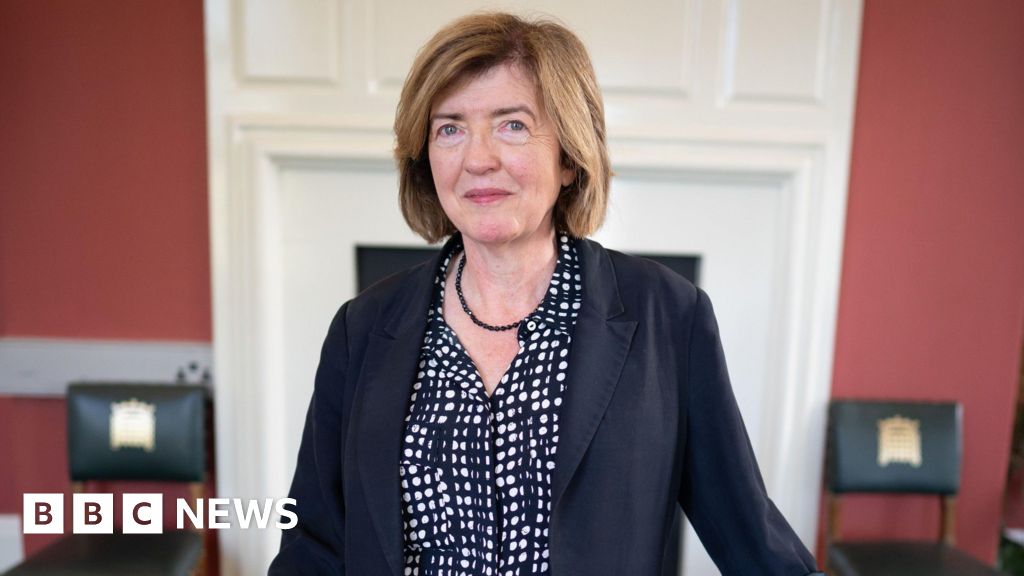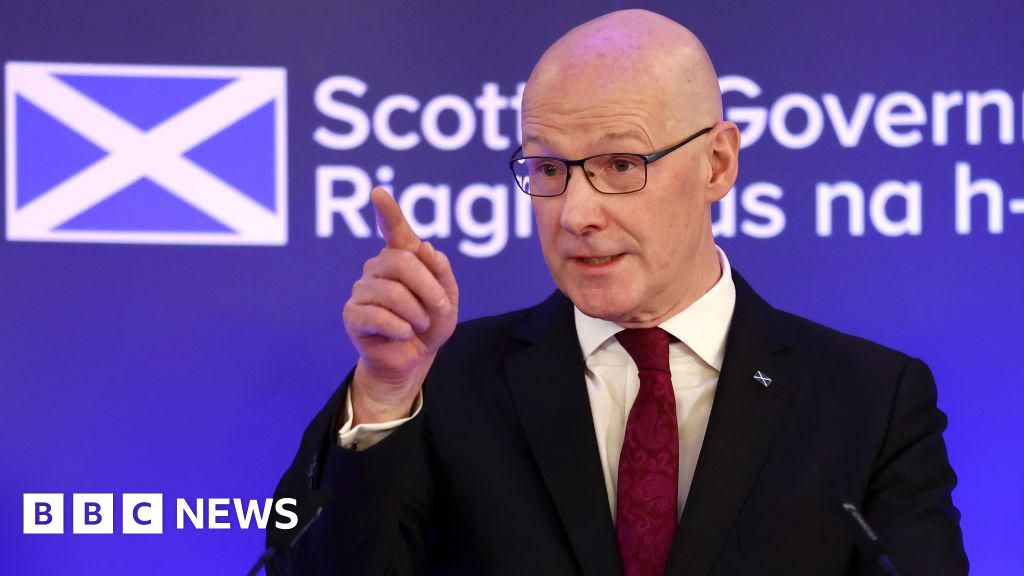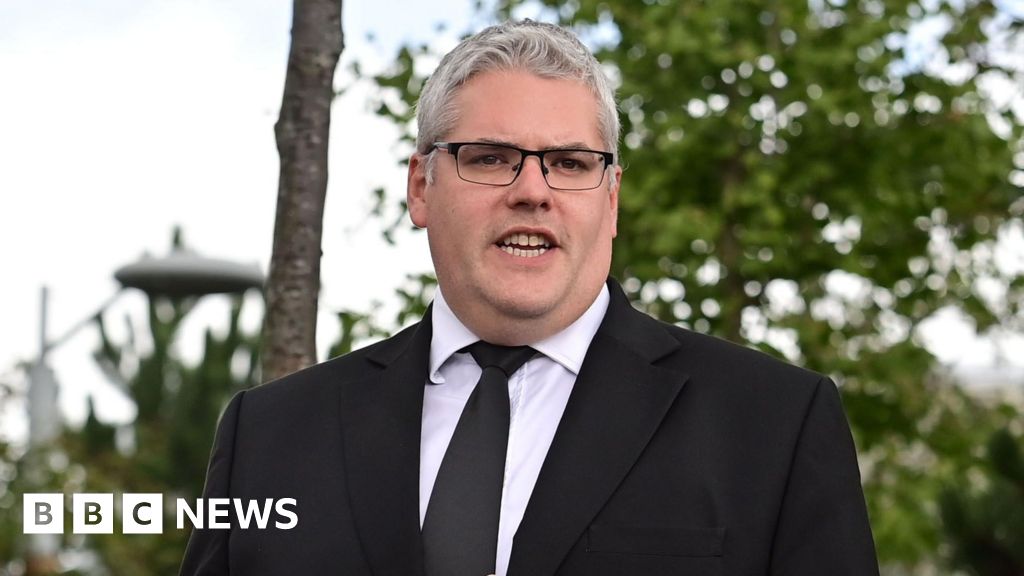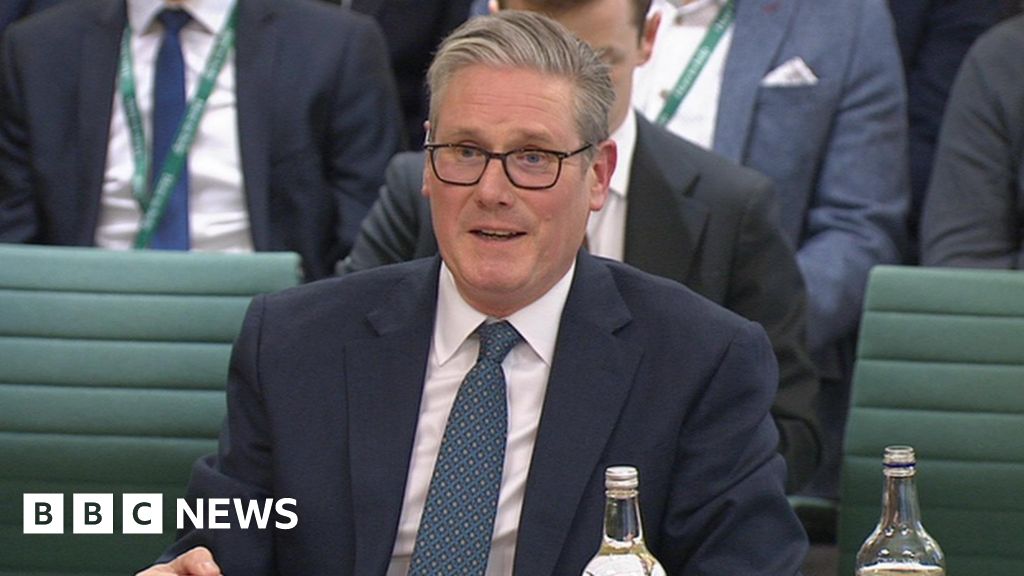
 PA Media
PA Media
TUV leader Jim Allister's bill aims to replace the Windsor Framework
MPs have clashed over Traditional Unionist Voice (TUV) leader Jim Allister's proposed law which seeks to overturn Northern Ireland's post-Brexit trading arrangements.
His private member bill aims to replace the Windsor Framework, which governs trade between Northern Ireland and Great Britain.
Allister described the deal between the last government and the European Union as an "undemocratic plundering of the Northern Ireland statute book".
The European Union (Withdrawal Arrangements) Bill was debated for nearly five hours on Friday in the House of Commons.
It was the start of its second reading stage, which is due to resume next year.
The bill was co-sponsored by all of Northern Ireland's unionist MPs alongside the former Conservative leader Iain Duncan Smith, Labour's Graham Stringer, and Reform UK's Nigel Farage and Richard Tice.
The Windsor Framework was agreed in 2023 following unionist concerns over trade checks under the original post-Brexit deal, the Northern Ireland Protocol.
'Undemocratic plundering'
Speaking in the Commons, Allister said his bill was about "fixing the foundations" which had been "disturbed and dislodged" by the trade arrangements.
He told MPs that 300 areas of law affecting Northern Ireland had been "surrendered" to the European Parliament.
"That is not just a democratic deficit, it is undemocratic plundering of the Northern Ireland statute book by the EU," he said.
'Magical thinking'
Northern Ireland Office minister Fleur Anderson said the "only workable deal" was the Windsor Framework.
She told MPs the idea of mutual enforcement has been described by the EU as "magical thinking".
Anderson said that "nowhere in the world does mutual enforcement happen in trading regulations wholesale between countries".
At some points in the debate, Allister said it seemed to be "a matter of humour" to some members on the Labour benches.
Robin Swann of the Ulster Unionist Party (UUP) also said he was "quite concerned" about the attitude of some MPs.
Labour MP Stella Creasy said she hoped Allister would "recognise it's not laughter on this side - it's bemusement at the inconsistencies".
She said the legislation the TUV leader was debating included human rights laws "and the basic equal treatment of everybody in Northern Ireland".
"So his legislation would rip up the very foundations of democracy, which is that everybody is equal," she said.
'Going back in time'
At one point there were shouts of "shame on you" from Social Democratic and Labour Party (SDLP) leader Claire Hanna.
It followed Allister saying the IRA's aim during the Troubles to "push the border to the Irish Sea" had been achieved by the NI Protocol.
Hanna told MPs: "It is his actions in fact that are inserting the dynamism in the question about constitutional change.
"Every time he pulls a stunt like this, he drives more people to seek to get out of the control of men like him."
Hanna said that "Northern Ireland in general wants to move on" from debating Brexit issues "morning, noon and night".
"I think people at home's hearts are sinking at the prospect of going back in time like a demented moth towards the hard-Brexit flame," she added.
'Potential of frustration'
Democratic Unionist Party (DUP) leader Gavin Robinson said the issues were still being debated because Westminster "did not listen" to unionist concerns.
"Members on both sides of this house did not listen to the warnings, and the concerns, and the opportunities for compromise and agreement," he said.
"And moreover, in doing and repeating the same approach today, are storing up greater potential of frustration for the future."
The debate came ahead of a vote in the Stormont assembly on the Windsor Framework due next week.
The process, known as the democratic consent motion, was contained in the UK and EU's 2020 Withdrawal Agreement to give local politicians a say on the rules.
What are Private Members' Bills?
Private Members' Bills are public bills introduced by MPs and Lords who are not government ministers.
As with other public bills, their purpose is to change the law as it applies to the general population.
A minority of Private Members' Bills become law.
There are three ways in which an MP can table a Private Members' Bill, but ballot bills have the best chance of becoming law, as they get priority for the limited amount of debating time available.

 2 weeks ago
10
2 weeks ago
10









